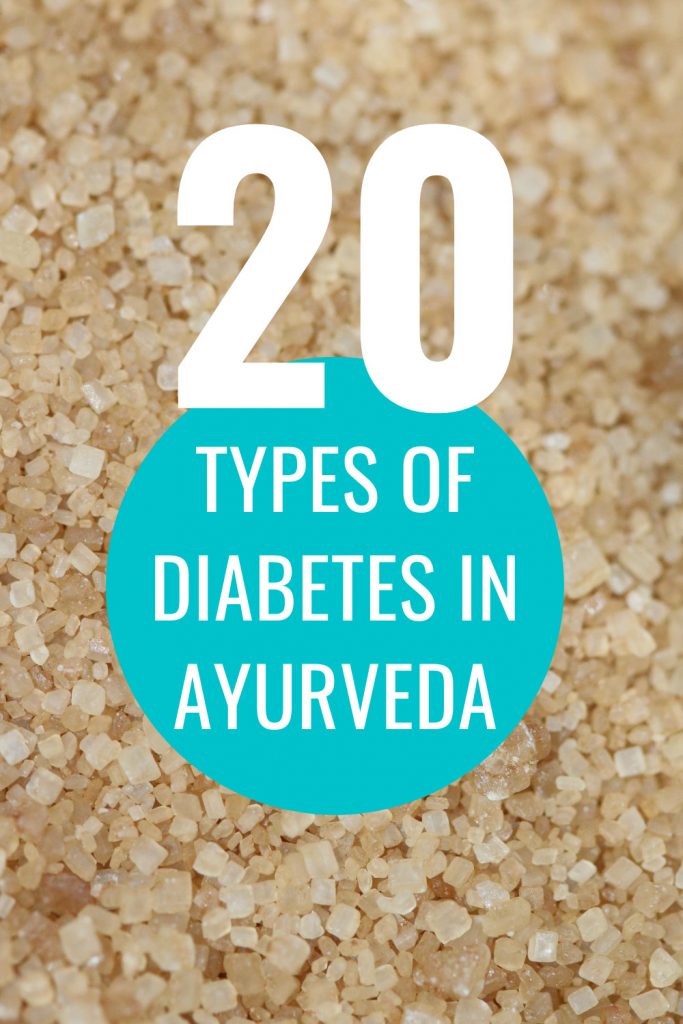What is diabetes according to Ayurveda? Know about the 20 types of diabetes in Ayurveda and what is the difference between Prameha and Madhumeha in Ayurveda.
Diabetes in Ayurveda
Diabetes in Ayurveda is known as Asrava or Prameha or Madhumeha. Prameha in Ayurveda is related to improper dietary habits and physical exertion. There are 20 types of Diabetes (Prameha) in Ayurveda (Vata 4, Pitta 6 and Kapha 10).
Ayurveda mentions Diabetes as a result of the malfunctioning of agni or digestive fire of the body which imbalances the blood sugar levels. IN its purest form, Diabetes is caused by the imbalance of Pitta in the body. As we know that Pitta is associated with fire and when there is an imbalance of the fire, diabetes begins to occur.
Types of Diabetes (Ayurveda)
These 20 kinds of Diabetes is based on the Ayurvedic Doshas. 4 types of Diabetes is caused due to Vata Dosha and are considered incurable, 6 types of Diabetes is caused due to Pitta Dosha and are considered difficult to cure, and final 10 types of Diabetes are caused due to Kapha Dosha and are considered easy to cure.

Types of Diabetes (General)
In general there are two types of Diabetes:
- Type 1 Diabetes Mellitus: This form of diabetes results from the pancreas’s failure to produce enough insulin. The loss of beta cells in the body is caused by an autoimmune response and the cause of this autoimmune response is unknown to humans. Type 1 diabetes must be managed with insulin injections.
- Type 2 Diabetes Mellitus: This is “Age Diabetes” or “Obese Diabetes”. Type 2 diabetes is primarily due to lifestyle factors and genetics. It begins when the body cells fail to respond to insulin properly. Prevention of type 2 diabetes involves maintaining a healthy diet and regular physical exercise. Type 2 diabetes is the most common type of Diabetes Mellitus.
Causes of Diabetes
The main causes of Prameha or Diabetes are:
- Sedentary lifestyle
- No physical exercise
- Diwaswap (day time sleeping)
- Improper food habits
- Excess food intake
- Excessive intake of sugar
- Excessive intake of refined carbohydrates
- Excessive intake of proteins and fats
- Too much tension, worry and anxiety
- Hereditary
Symptoms of Diabetes Mellitus
- Constant feeling of hunger
- Constant feeling of thirst
- Constant feeling of sweetness in the mouth
- Too often exhaustion
- Limitations in sexual urge or capacity
- Constipation
- Excess of palpitation and bad body odor
- Very slow healing of wounds and scars
- Sudden blurry vision
- Too frequent urination
Madhumeha or Diabetes Mellitus
Madhumeha is Diabetes Mellitus. Madhumeha in Ayurveda means “Madhu (honey)” and “Meha (urine)”. It is also known as Kshoudrameha (the word Kshoudra also means honey). Madhumeha or Diabetes Mellitus is considered as a Maha Rog in Ayurveda because if not treated in time it can affect the entire human body.
Unlike Prameha, Diabetes Mellitus (Madhumeha) is associated with the Vata Dosha. In simple words, Madhumeha occurs when there is an aggravation of Vata Dosha. Vata is associated with wind (air and movement) and when Vata is imbalanced Madhumena happens.
It must be also noted that Madhumeha can also happen due to Kapha Dosha imbalance. When Vata Dosha people consume food beyond their body strength, Kapha imbalances and finally “Type 2 Diabetes” may happen.
One of the most widely known causes of Diabetes Mellitus (Madhumeha) is malfunctioning of the digestive system. Due to poor digestion toxins start to accumulate in the system and damage pancreatic cells which hinders the normal production of insulin in the body. This situation results in high blood sugar or sugar in urine.
Note that there is no known remedy for Type 1 Diabetes. Type 2 Diabetes can be prevented by maintaining a normal body weight, enforcing strict dietary changes and engaging in physical activity.
